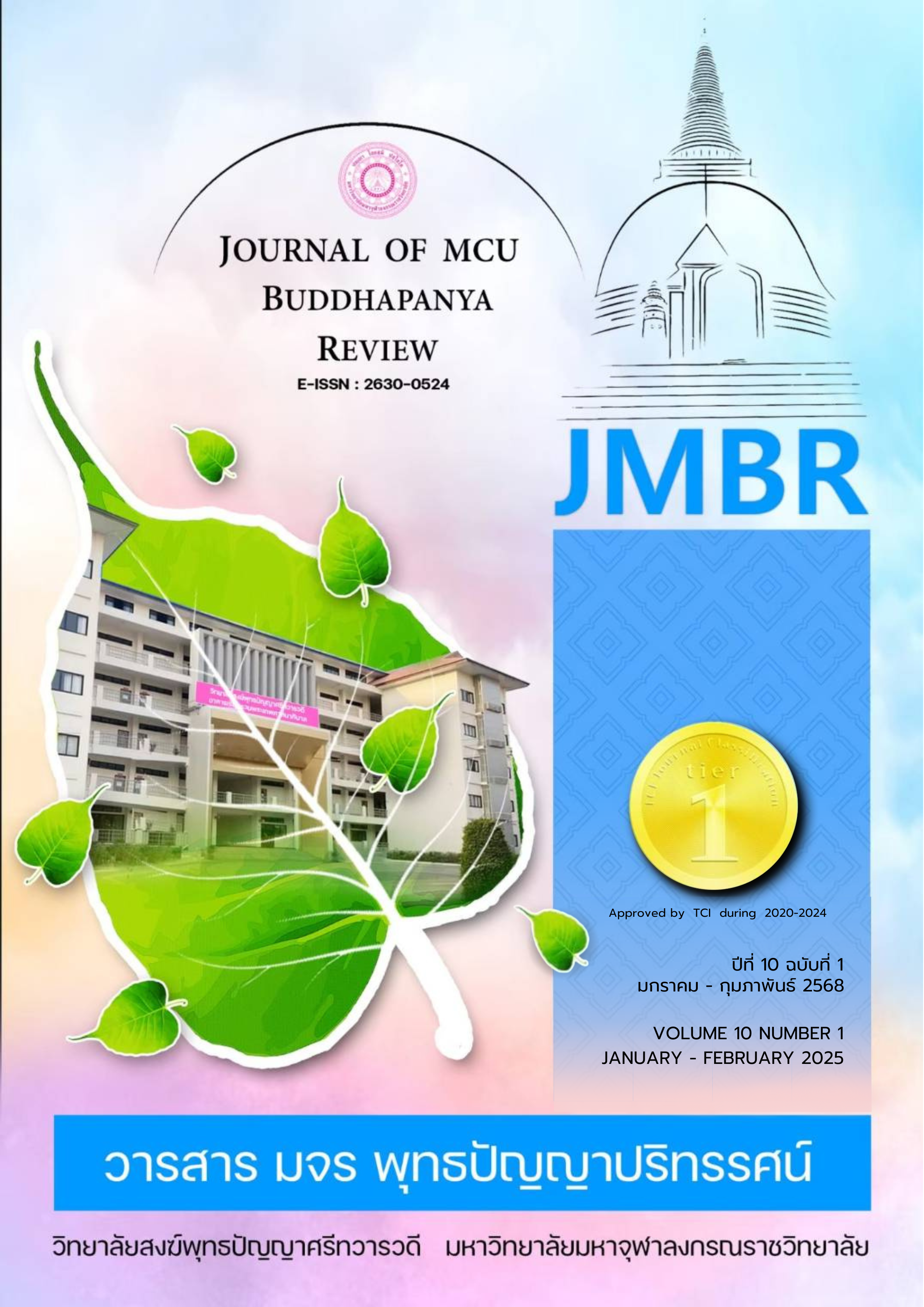รูปแบบการเรียนรู้“Me Mind Learn” เพื่อการรู้แจ้งโดยการประยุกต์ใช้ทฤษฎีสรรคนิยม
คำสำคัญ:
รู้แจ้ง, รูปแบบการเรียนรู้ใหม่, ทฤษฎีสรรคนิยมบทคัดย่อ
การวิจัยนี้มีเป้าหมายเพื่อพัฒนารูปแบบการเรียนรู้ใหม่ “Me Mind Learn” ที่มุ่งหวังการสร้างผลลัพธ์การเรียนรู้ที่เหมาะสมกับเป้าหมายของการศึกษาสำหรับผู้เรียนในปัจจุบันและอนาคตทำให้ผู้เรียนรู้เกิดการรู้แจ้ง (Enlightened Individual) โดยการประยุกต์ใช้ทฤษฎีสรรคนิยม (Constructivism) มีการเก็บข้อมูลจากกลุ่มเป้าหมาย คือ นักศึกษาระดับปริญญาตรี จำนวน 1,172 คน ที่เรียนในรายวิชาศึกษาทั่วไปและรายวิชาเฉพาะด้าน
ผลของการวิจัยพบว่า รูปแบบการเรียนรู้ใหม่ “Me Mind Learn” ประกอบด้วย 6 ขั้นตอน ได้แก่ 1) การกำหนดผลลัพธ์การเรียนรู้ตามความคาดหวัง 2) การนำเข้าสู่บทเรียน 3) การตั้งคำถาม 4) การสร้างกิจกรรมและบรรยากาศการเรียนรู้ร่วมกัน 5) การสะท้อนการเรียนรู้ 6) การสรุปบทเรียน และเมื่อการเรียนรู้ดำเนินการครบทั้ง 6 ขั้นตอนแล้ว พบว่า ผู้เรียนรู้มีความพึงพอใจต่อการจัดการเรียนรู้อยู่ในระดับมากที่สุด มีพัฒนาการด้านความรู้ ทักษะและทัศนคติที่สามารถนำไปใช้ประโยชน์ได้จริงทั้งในด้านการเรียนและการดำเนินชีวิต
เอกสารอ้างอิง
Gupta, R. & Gupta, V. (2017). Constructivist approach in teaching. International of Humanities and Social Sciences (IJHSS), 6(5), 77-88.
Haemaprasith, S. (2001). Constructivism. In Encylopedia of Education (Vol. 21, pp.91-96). Bangkok: Pattanasuksa.
Khemmanee, T. (2017). Science of Teaching Pedagogy. (21st ed.). Bangkok: Chulalongkorn University.
Lumpoothong, N. (2022). The Development of Instructional Model to Enhance The Critical Thinking Skills for Secondary School Students. Journal of MCU Buddhapanya Review. 7(3), 283-295.
Ministry of Higher Education, Science, Research and Innovation. (2019). Policy and Strategy of Thailand HESI 2020-2027 and Thailand SRI Plan 2020-2022. Bangkok: Ministry of Higher Education, Science, Research and Innovation.
Olusegun, B. (2015). Constructivism Theory: A Paradigm for Teaching and Learning. IOSR Journal of Research & Method in Education (IOSR-JRME), 6(1), 66-70.
Phrakru Sootakijworakhun. (2013). Buddhist Teaching Methods. In Encylopedia of Education (Vol. 47, pp.104-114). Bangkok: Pattanasuksa.
Santadrob, P. (2014). Effeects of Using Higher Order Questions on Critical Reading Ability and Learning Retention of Third Grade Students (Research Report). Bangkok: Chulalongkorn University.
Sapianchai, P. et al. (2018). Proposal for Teacher Development Using Educational Research Networks. as cited in Commemorative Cremation Ceremony Prof.Dr.Poj Sapianchai (4 February 189-201). Bangkok: Icon Printing.
Somdet Phra Buddhaghosacariya (P.A. Payutto). (2007). Thai People to The IT Era. (8th ed.). Bangkok: Pimsuay.
Sriklaub, K. (2014). Development of an Effective Learning Climate Enhancement Model: Design Based Research and MMSEM Analysis. (Doctoral dissertation). Chulalongkorn University. Bangkok.
Sungrugsa, N. & Thammapipn. S. (2020). Learning Reflection: Perspective in order to Construct the Body of Knowledge in Education Research. Silpakorn Education Research Journal, 12(2), 1-15.
ดาวน์โหลด
เผยแพร่แล้ว
รูปแบบการอ้างอิง
ฉบับ
ประเภทบทความ
สัญญาอนุญาต
ลิขสิทธิ์ (c) 2025 วารสาร มจร พุทธปัญญาปริทรรศน์

อนุญาตภายใต้เงื่อนไข Creative Commons Attribution-NonCommercial-NoDerivatives 4.0 International License.



